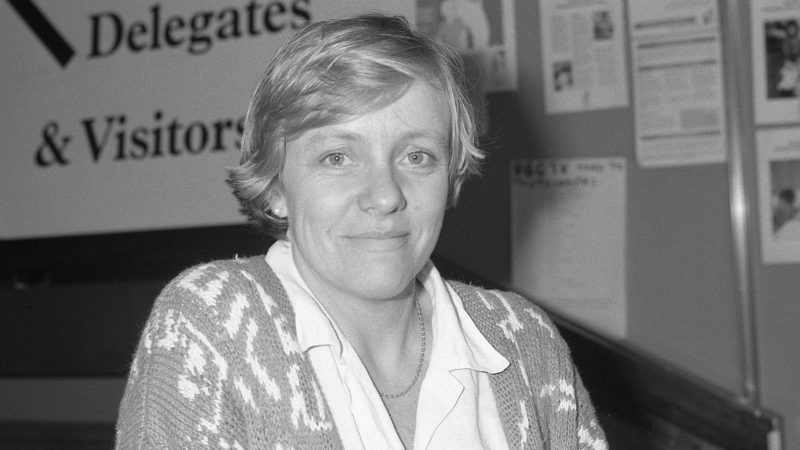
Today is the 15th anniversary of Mo Mowlam’s death. Mo was surely the best Northern Ireland Secretary this country has ever had, and one of the finest ministers to ever grace the Labour Party benches, and yet somehow she is increasingly erased from the narrative. When Mo was appointed as Northern Ireland secretary in 1997, the job was thought to be a ‘poisoned chalice’. But Mo approached it as she did everything in life – with a human touch. Mo knew that peace wasn’t going to come just from leaders, but from the people. She met with victims and survivors from all communities. Her inclusion of women was imperative to the peace process: she knew that without inclusion of the women in each community, there would be no progress.
This was a marked change from the usual approach. Mo knew peace was ultimately about transforming the lives of ordinary people, and that was what motivated her. She spent as much time as she could visiting community organisations and projects. She was passionate about integrated education, believing that children were key to building a real, long-lasting, happy community. There were her unprecedented visits to Maze Prison, which followed the murder of loyalist Billy Wright by republican inmates. This led to some prisoners withdrawing their support from the negotiations. Against all advice, Mo went into the notorious prison to talk to them. She regained their support and the peace process resumed.
As we have seen from great female leaders since Mo – people like Jacinda Ardern and Alexandria Ocasio-Cortez – there is a warmth often brought by women to politics that really makes a difference. People often refer to the time Mo tossed her wig on the table, when she was recovering from cancer, during a particularly volatile series of negotiations as demonstrative of her unusual style of politics. But of course, it wasn’t really a style: it was real. With Mo, what you saw was what you got, which made it easier for her to win trust.
In 1999, Mo was moved from the Northern Ireland brief and replaced by Peter Mandelson. It’s hard to think of a reason for this decision. As Peter Hain said: “Mo Mowlam was the catalyst that allowed politics to move forward, which led to the signing of the Good Friday Agreement in April 1998. She cut through conventions and made difficult decisions that gave momentum to political progress.” In her autobiography, Momentum, Mo recounted her disappointment at being moved before she had the opportunity to finish what she had started and said that she felt misogyny had played a part in how she was treated. Others felt that her popularity, best illustrated by the standing ovation that she received during Tony Blair’s leader’s speech at the 1998 Labour Party conference, meant she was simply too popular.
In 2005, when Mo died, Blair said of her: “It is no exaggeration to say she transformed the politics not just of Northern Ireland itself but crucially of relations between the Republic of Ireland and the UK, and it was this transformation that created the culture in which peace-making could flourish… Suddenly nationalist, republican and Catholic Ireland had every preconception of the English up-ended and rendered out of date. She didn’t have to talk about equality. She exuded it, naturally, and with an absence of affectation that was marvellous to behold… She bowled everyone over.”
But oddly, when making a speech to mark 20 years since the Good Friday Agreement in 2018, Blair did not even mention Mo. Both Mo’s stepdaughter Henrietta Norton and Harriet Harman have expressed concern about the erasing of Mo from the historical narrative. Despite these efforts, Mo remains – 15 years after her death – a popular figure, held in high esteem by supporters of all parties. But younger generations deserve to know all about the work that Mo did, and to be inspired by her like those of us who grew up watching her in action. I could not let today go past unmarked, so I wrote this piece. I recommend anyone who wants to feel hopeful to read Mo’s book Momentum.




More from LabourList
Letters to the Editor – week ending 15th February 2026
‘Labour council candidates – it’s tough, but all is not lost’
‘Labour won’t stop the far right by changing leaders — only by proving what the left can deliver’